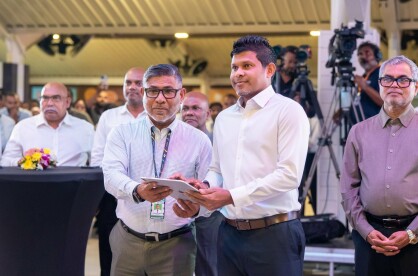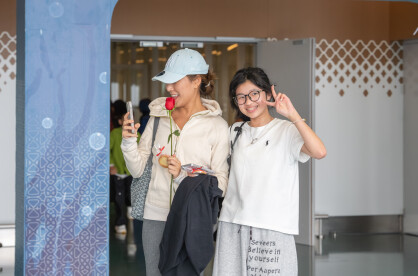Each business has its unique story to tell, but there are certain common factors that enable them to be successful and their 'lessons learnt' can prove invaluable for new start-ups.
In the Maldives, most women-owned Micro, Small, and Medium-sized Enterprise (MSME) are engaged in home-based, small-scale productions with low commercial returns, with almost 44 percent of them employed in the informal sector. As a result, the majority of women micro-entrepreneurs remain stuck in home-based, small-scale production, especially in the agriculture and fisheries sectors, and often fail within the first few months of operation.
However, despite major hurdles, more and more women are finding their feet and proving that they can transform their innovative ideas into successful ventures. The Maldives Financial Review explores the journey of Sheri Pvt Ltd and discusses founder, Shaira Saleem's views as to what enabled it to be successful.
1. Self-confidence and determination
There have been many studies focusing on the success factors behind women's entrepreneurship, one of which is the self-confidence and the determination to want to start one's own business. Shaira Saleem's journey, now the Managing Director of Sheri Pvt Ltd, is testament to this confidence and commitment. As she rightly puts it, "when you are firm on something and have confidence, you can achieve anything."
However, her journey wasn’t always easy. Twenty years ago, Shaira’s initial steps were challenged by existing ‘gender stereotypes’ which dictated the role of women in society, and business, discouraging women from fully participating as economic players — views which continue to be accepted even today. She faced challenges in convincing her family when she wanted to start and run her own business. Her dreams were seen as 'overly ambitious' and 'an unnecessary burden' for a mother of four. In spite of this, she remained steadfast and managed to win the support of her family, and started her business in 1998. As a result, she continues to inspire many young entrepreneurs to dream big and high.
2. Simple ideas supported by proper business planning
Shaira Saleem, who is also the Chairperson of the Women Entrepreneurs Association Maldives (WEAM), pointed out that it is important to write down business ideas, and prepare a business plan. So, even though she had 'limited business knowledge,' she made a plan and afterwards sought the assistance of an audit firm to prepare its financial feasibility. She initially thought it funny to do so because she was confident in her vision and her business model. Later she would realise that the plan gave the business a clear direction and targets.
3. Overcoming financial hurdles
The common challenges facing women entrepreneurs in the Maldives include high start-up costs, limited access to finance, high collateral requirements and a lack of access to banking facilities.
According to Shaira, compared to 20 years ago, there are now more financing schemes and government assistance programs that facilitate finance for MSMEs but many women entrepreneurs are not fully aware of these facilities and how to apply for them.
The SME Development Finance Corporation (SDFC) currently allocates 25 percent of their loan portfolio to women, youth and persons with disabilities. To ensure female-led enterprises are aware of such facilities, and to clearly target women MSMEs, the Asian Development Bank has also recommended the importance of providing a loan scheme ‘dedicated exclusively for women,’ such as the ‘Kabalunge’ loan scheme in 2018.
Despite the availability of many facilities, Shaira said that a common pitfall faced by many businesses is that they borrow without 'a real plan of how to repay the loan.' She agrees, however, that high equity requirements, and fewer collateral owned by women, makes it difficult for women to secure loans — statistics from 2017 indicated that only 16 percent of motorcycles and cars were registered to women.
4. Grow your business steadily
Shaira explained that at the initial stage of her business, she was employing a minimal number of full-time staff. As a result, she worked as the receptionist, the marketer and administrator, and her family helped her with the cleaning and repair work at her store. She initially hired many on a part-time basis, including instructors, beauticians, and hairdressers. As her business continued to expand and provide more services, such as a salon, gym, library and a child care facility, she however needed a large workforce. Three years after she initiated her business, she moved to a larger space as her business was doing well, outperforming her initial business plan.
5. Marketing strategically with the right mix
For most entrepreneurs, one of the main factors contributing to success is the marketing of their products, which includes product differentiation, and product innovation.
With her experience as the vice chairperson of the SAARC Chamber of Women Entrepreneurs Council (SCWEC), Shaira hopes that more women enterprises will take the next step to 'think beyond Maldives' borders and expand their markets' and to engage in the export of of authentic goods since many home-based, women-led, businesses produce unique handmade products.
She believes that the government and the tourism industry need to 'lend a helping hand' to build links between the tourism industry and local communities. She advocates resorts feature spaces in coffee shops or lobbies for communities, especially women from island communities, to display products, whereby creating an enabling environment of value added interactions, leading to exposure to tourists.
Shaira also highlighted the importance of knowing the details of the products and services of the business. She said that one key lesson she learnt was that 'you have to know how your business operates in detail.'
Though change has been slow over the last 20 years, there are now more opportunities for women-led enterprises. And with more young, focused and educated, women entrepreneurs starting their businesses, Shiara is confident that they can really take the next leap with the right support and guidance.






